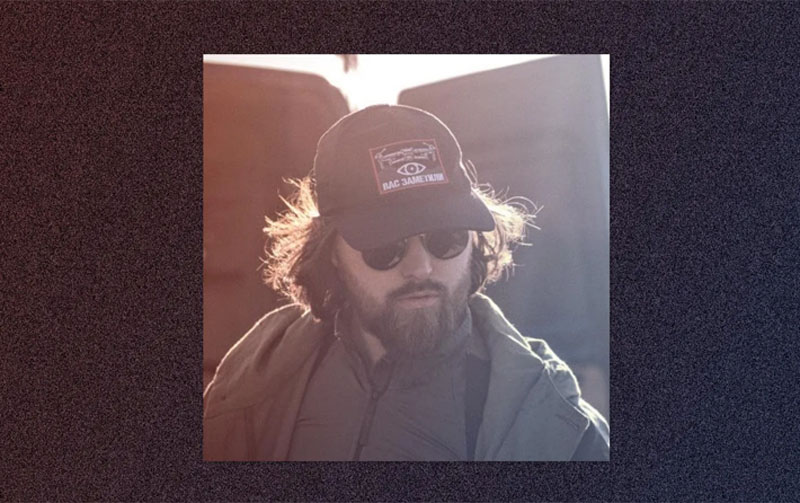Как участник «марафонов желаний» и украинский физик собирают дроны для российских захватчиков


Журналисты издания «Важные истории» смогли идентифицировать членов команды одного из самых странных конструкторских бюро, работающих на российскую армию, — «Стратим». Рассказываем, как бывший менеджер госкорпорации «Ростех» проконсультировался с шаманами и стал создавать новые беспилотники для войны. Для этого он привлек выпускника Сколтеха, русских националистов и киевского физика-ядерщика (на фото в кепке с надписью «Вас заметили»), работающего на проекте европейской организации по ядерным исследованиям (ЦЕРН).
От марафонов Блиновской к сборке БПЛА
В декабре 2023 года основатель конструкторского бюро «Стратим» с позывным Оби Ван рассказал в интервью Russia Today, как после разговоров с «военкором» Владленом Татарским решил делать беспилотники для российских военных. Он даже собрал команду из ученых ЦЕРНа (Европейского центра ядерных исследований) и Сколтеха, и теперь работает в атмосфере секретности, потому что «спецслужбы ВСУ» пытаются «выслеживать» его инженеров.
Чтобы лучше изучить тактику применения БПЛА и артиллерийской разведки, Оби Ван в ноябре 2022 года поехал в короткую командировку на фронт вместе с «военкором» Russia Today Андреем Филатовым. Там производитель дронов и пропагандист RT с помощью БПЛА одного из подразделений «ДНР» проводили разведку, признавался сам Оби Ван.
Зачем основатель конструкторского бюро пытался скрывать лицо и работать под позывным, непонятно. С момента основания компании информация о директоре АО «Стратим» была открыта — это Иван Бежанов, несколько лет проработавший в структурах «Ростеха». На выставке HelixRussia-2024 в июне Оби Ван впервые дал интервью на камеру. Сравнив соцсети Бежанова и кадры с выступлением Оби Вана, «Важные истории» убедились — это один и тот же человек.
Поначалу его «Стратим» занял площадку на территории одного из оборонных НИИ, говорил сам менеджер. Судя по объявлениям на hh.ru и списку телеграм-чатов инженеров «Стратим», речь идет о ростеховском Московском радиотехническом институте рядом с метро «Южная». В советское время там разрабатывали первые ускорители частиц, а в 2015 году МРТИ закончил работу над СВЧ-пушкой для борьбы с беспилотниками.
В команду Бежанов пригласил знакомых инженеров. «Выпускники лучших вузов страны, идейно заряженные на борьбу за Россию», — называл их телеграм-канал «Тыл-22» основателя ультраправого книжного издательства «Черная сотня» Дмитрия Бастракова. Инженеры решили работать назло антивоенным ученым, «партизанить и вести разработку дронов в лабораториях московских университетов», где руководство и студенты высказывались против вторжения в Украину, рассказывал Бастраков.
УБЫТОЧНЫЙ БИЗНЕС
С основателем «Стратим» связаны три юридических лица: АО «Стратим», АО «Стратим-Тех» и ООО «Стратим». В 2023 году Иван Бежанов стал директором АО «Стратим» и АО «Стратим-Тех». Первое юрлицо закончило год с выручкой 964 тыс. рублей и убытком более чем в миллион. Вторая компания не имела выручки в 2023 году. В мае этого года руководителем обеих компаний стал номинальный директор Павел Костюнин.
Он же возглавил созданное в 2024 году ООО «Стратим», в котором владеет 75%. Оставшаяся четверть принадлежит АО «Стратим». В июне на выставке HelixRussia-2024 Костюнина можно было увидеть у стенда «Стратим», но он остался в тени.
Сам Бежанов хоть и решил зарабатывать на войне, поставляя оружие на фронт, предпочел защититься от мобилизации. В октябре 2022 года он сам признался в открытом чате в «Телеграме», что оформил липовое зачисление в аспирантуру, чтобы «следующие три года жить спокойно». В сообщении он не упоминает университет, но говорит о некой компании, «которая может помочь с этим оперативно». Отсрочку от мобилизации ему «сделали за три дня».
Будущий поставщик беспилотников до войны строил успешную карьеру в управленческом консалтинге, работал в представительствах английской PricewaterhouseCoopers и американской McKinsey, а после ушел на руководящие позиции в структуры госкорпорации «Ростех». Вместе с Василием Бровко, пиарщиком главы «Ростеха» Сергея Чемензова, Бежанов входил в совет директоров подконтрольного корпорации завода «Октава».
В соцсетях глава «Стратим» публиковал фото со светских мероприятий, впечатления о выступлениях мотивационного спикера Тони Роббинса и хвастался, что живет по соседству с третьим номером в списке Forbes, основным акционером ЛУКОЙЛа (на тот момент) Вагитом Алекперовым, которого охраняют автоматчики. Геолоцировать 250-метровую квартиру Бежанова на Патриарших помогли многочисленные фото, которые он сам выкладывал в фейсбуке.
До войны менеджер «Ростеха» пытался добиться успеха с помощью эзотерики и «марафонов желаний»: проходил курсы у создателя «марафонов» Елены Блиновской, ездил на шаманские обряды в Бурятию и лечился от коронавируса с помощью мастера по «психосоматике». После вторжения России в Украину Бежанов решил выяснить у шаманов, «как прийти к делу жизни в профессиональном смысле». И начал собирать боевые БПЛА для российской армии.
Украинский физик-ядерщик для российской армии
Главным конструктором в «КБ Стратим», как ни странно, стал физик-ядерщик из Украины — выпускник Киевского политеха Александр Махнёв. Сейчас он работает над одним из проектов в ЦЕРН в составе команды из России.
Махнёв родом из Луганска и жил там как минимум до 2014 года. Его отец, Игорь, — ученый в области ядерного приборостроения. Махнёв-младший стал заниматься наукой еще в школе и даже попал в книгу «Изобретатели Украины — элита государства».
После захвата Луганска пророссийскими формированиями семья перебралась в Киев, где Махнёв окончил престижный лицей Киевского политехнического института (КПИ) им. Сикорского. В 2015 году он поступил в сам КПИ на программу «Радиоэлектронные аппараты», но продолжил обучение уже на магистратуре российского МФТИ.
С этого момента Махнёв работал под руководством сотрудника Института ядерных исследований (ИЯИ) РАН в Троицке Федора Губера. Как указано на сайте института, Губер участвовал в ряде международных экспериментов: на объектах ЦЕРН в Швейцарии и на ускорительном комплексе под Дармштадтом. В апреле 2022 года вышла первая статья, соавтором которой стал Махнёв в составе российской команды на женевском эксперименте ЦЕРН.
Через несколько месяцев молодой ученый присоединился к «КБ Стратим». Судя по сообщениям Махнёва в одном из чатов любителей беспилотников, первые прототипы БПЛА инженеры бюро подготовили уже к ноябрю 2022 года. Но к серийному производству «Стратим» приступил весной 2023 года, когда националистический канал «Тыл-22» объявил сбор двух миллионов рублей на китайские комплектующие для FPV-дронов. Подготовить их должно было «дружественное конструкторское бюро в Москве». Позже «Тыл-22» заявил, что этим займется именно «Стратим», а летом готовые беспилотники отправили в российские подразделения, воюющие в Украине.
В августе 2023 года «Стратим» представил первые образцы собственного производства на выставке «Дронница-2023»: беспилотники «Щегол», «Красава», «Русак» и другие. На одном из видео появляется Александр Махнёв — он приводит в порядок стенд компании.
Сейчас Махнёв руководит инженерной командой бюро. О роли Махнёва Бежанов рассказывал все в том же интервью RT: «Человек, занимающий в “Стратим” должность главного конструктора, до СВО являлся одним из ученых, работавших над проектом Большого адронного коллайдера в ЦЕРН». Человеком, о котором говорит Бежанов, очевидно, и был Махнёв. И работу в экспериментах ЦЕРН он не прекратил до сих пор.
Статьи о результатах экспериментов на объектах ЦЕРН с его именем публиковались вплоть до апреля 2024 года в журнале European Physical Journal C. Сейчас Махнёв занимает должность младшего научного сотрудника отдела экспериментальной физики ИЯИ в Троицке. В июне глава Курчатовского института Михаил Ковальчук направил письмо Путину с просьбой присоединить к институту несколько научных организаций, в числе которых был ИЯИ РАН.
Ученый совет ИЯИ выступил против перехода под крыло Курчатовского института и направил обращения в адрес Минобрнауки и РАН. Институт, в частности, объяснил это решение риском подпадания под санкции, которые уже введены в отношении Курчатовского института. Это «практически полностью перекроет доступ к зарубежным технологиям и оборудованию», пишут авторы обращения. В результате под угрозой могут оказаться проект «Байкальский глубоководный нейтринный телескоп» и участие института в международных исследованиях. При этом в обращении ученые прямо говорят, что также «выполняют исследования в интересах обороны и безопасности страны».
Проекты в ЦЕРН — один из примеров международного взаимодействия, лишиться которого опасаются в ИЯИ. Ученые из российских институтов продолжают работать с организацией даже после решения ЦЕРН о прекращении сотрудничества с Россией и Беларусью. Дело в том, что действие соглашения закончится лишь в ноябре этого года.
Однако решение ЦЕРН не коснется другой организации, Объединенного института ядерных исследований (ОИЯИ) в Дубне. Формально этот институт имеет статус межправительственной организации, как и ЦЕРН. В июне 2024 года ЦЕРН продлил соглашение о сотрудничестве с ОИЯИ, несмотря на возражения представителя Украины в научной организации Бориса Гринёва.
«Это очень плохое решение. Будучи под санкциями, Россия ищет технологии для модернизации армии. Ученые из ОИЯИ могут передавать информацию о материалах, детекторах и коннекторах, например, для производства дронов», — заявил он в интервью Geneva Solutions.
Один из российских ученых, работающих в ЦЕРН, на условиях анонимности рассказал «Важным историям», что после начала полномасштабной войны многие ученые из России поменяли аффилиацию на европейские или американские институты, но чаще отказываются от командировок из-за дороговизны билетов и сложности маршрута с пересадками.
«Решение ЦЕРН продолжить работу с ОИЯИ было воспринято позитивно, это дает шанс продолжить многим российским ученым работать в ЦЕРН, — говорит он. — Мне трудно представить, что какая-либо информация, полученная в ЦЕРН, может существенно повлиять на производство дронов. ЦЕРН повсеместно использует решения, предоставляемые индустрией, и для доступа к этой информации доступ в ЦЕРН не нужен».
По его словам, российские ученые «при наличии контактов» могут устроиться на 1/10 ставки в ОИЯИ, чтобы продолжить работу в европейской организации по ядерным исследованиям. При этом сотрудникам институтов РАН и МГУ это сделать проще, чем ученым из организаций, входящих в состав Курчатовского института.
Сам Махнёв не ответил на просьбу рассказать о производстве дронов и работе в ЦЕРН. Он сказал, что это «публично увяжет несколько сторон жизни», которые он «старается разносить».
В ЦЕРН деятельность Махнёва тоже не прокомментировали, заявив, что «деятельность ЦЕРН направлена на мирные фундаментальные исследования» и в ней «нет военного аспекта». «После начала войны в Украине Совет ЦЕРН принял ряд мер, приостановив статус наблюдателя для России в марте 2022 года и прекратив действие Соглашения о международном сотрудничестве с Россией и Беларусью в июне 2022 года и в декабре 2023 года», — добавили в научной организации.
Реплики американских БПЛА
В августе 2023-го на выставке «Дронница» от команды бюро «Стратим» появляется еще один «секретный» сотрудник. Это руководитель мультироторного направления бюро, который, как выразился Бежанов, «работал по теме робототехники» в Сколтехе. С помощью сервисов распознавания лиц и анализа соцсетей мы идентифицировали этого человека как Кузьму Федоровича.
Руководитель мультироторного направления «Стратим» Федорович учился в магистратуре Сколтеха с 2021 года. Этот вуз долгое время считался одним из ведущих исследовательских институтов России и даже сотрудничал с Массачусетским технологическим институтом (MIT), а в 2019 году вошел в рейтинг лучших молодых вузов мира. Однако с началом войны Сколтех подпал под санкции США за сотрудничество с российским оборонным сектором.
Другого инженера конструкторского бюро «Важные истории» обнаружили на hh.ru — опыт работы в «Стратим» он указал в своем резюме. Это ведущий инженер-конструктор бюро, который присоединился к нему в декабре 2023 года.
В резюме он заявляет, что скопировал беспилотник ALTIUS-600, которые США предоставили Украине. Эти дроны могут использоваться как в разведывательных целях, так и нести боевую часть, пролетая более 400 км. На сайте «Стратим» можно встретить беспилотник «Ласточка», внешне напоминающий ALTIUS-600. Однако по своим характеристикам он проигрывает американскому конкуренту.
«Важные истории» установили, кто разместил это резюме. Под указанные в нем данные о предыдущих местах работы, образовании и дате рождения подходит только один человек — это Дмитрий Круглов, выпускник Казанского технического НИУ им. Туполева и МАИ.
В команде «Стратим» работают не только топовые инженеры. Дизайн презентации с модельным рядом бюро сделала бывший дизайнер McKinsey Алина Барсегова, следует из метаданных файла. В соцсетях она называет свою текущую должность — директор по дизайну, но не указывает компанию.
Recent Posts
Сбежавший в Швейцарию блогер Станислав Домбровский просит прощения у украинцев
Одесский трэш блогер Стас Домбровский, который в последнее время проживает в Швейцарии, записал видеообращение к…
Александра Устинова и атака на руководство АОЗ: что стоит за волной критики
Александра Устинова, народная депутат, которая в последние дни активно атакует Агентство оборонных закупок (АОЗ) возможно…
Журналисты показали имение киевской судьи, закрывшей дело Приходько
Свобода "под ключ" или манипуляция правосудием? Борис Приходько – нацбанкир времен Януковича и действующий нардеп…
Судьи вне закона
В течение последних трех лет внимание общественности если и бывает приковано к судам, то гораздо…
Артем Ляшанов и bill_line спасают репутацию через суд
Финтех-компания столкнулась с обвинениями в отмывании денег игорной мафии. ООО «Тех-Софт Атлас» (ТМ «bill_line») и…
Криптобиржа WhiteBIT: как Владимир Носов и «регионалы» Шенцевы отмывают деньги и помогают спецслужбам России
Владимир Носов в Украине пытается позиционировать себя как респектабельный бизнесмен и хозяин криптобиржи WhiteBIT. Однако…


